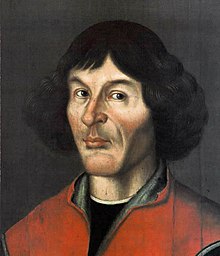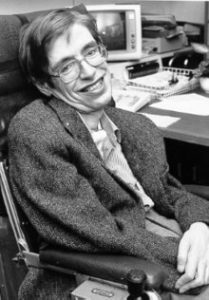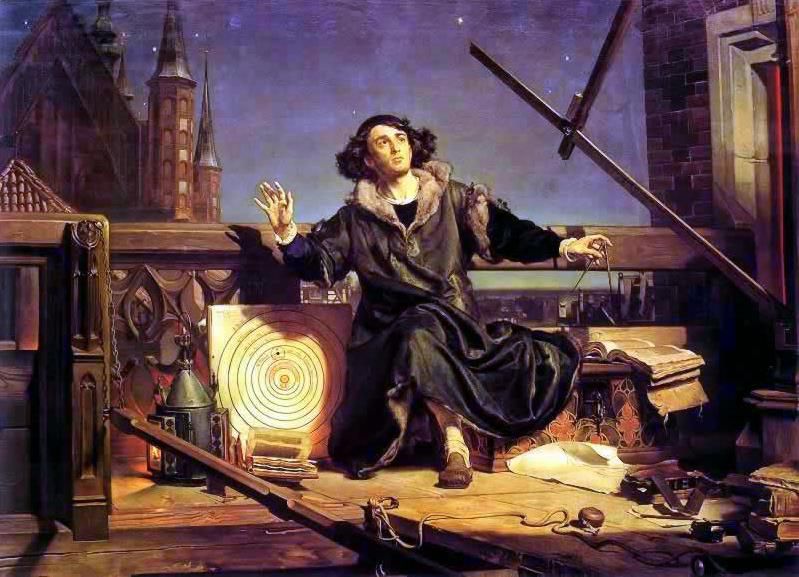Nicolaus Copernicus and Stephen Hawking
Nicolaus Copernicus and Stephen Hawking were both Enlightenment scientists of their time and they lived 469 years apart. Copernicus studied law and medicine at the great center of Renaissance learning, the University of Bologna. After he observed a lunar eclipse in Rome, in 1500, he dedicated himself to astronomy, as well. Hawking uses Thomas Kuhn’s term “paradigm shift,” to describe the effects of the Copernican heliocentric theory,“…opening the way to modern astronomy and broadly affecting science, philosophy and religion.”
Who was Nicolaus Copernicus?

Nicolaus Copernicus was a Renaissance-era mathematician and astronomer who formulated a model of the universe that placed the Sun rather than the Earth at the center of the universe, likely independently of Aristarchus of Samos, who had formulated such a model some eighteen centuries earlier. Aristarchus of Samos was a Greek astronomer who maintained that Earth rotates on its axis and revolves around the Sun. Nicolaus Copernicus was born February 19, 1473 in the Kingdom of Poland and died at the age of 70 on May 24, 1543 in Royal Prussia, Kingdom of Poland. By the time he was born, Toruń had ceded (give up) to Poland, rendering him a citizen under the Polish crown. German was Copernicus’s first language, but some scholars believe that he spoke some Polish as well. Nicolaus Copernicus was known for Heliocentrism, Copernicus’ Law, and Copernican principle. He obtained a doctorate in canon law and was also a mathematician, astronomer, physician, classics scholar, translator, governor, diplomat, and economist. Nicolaus Copernicus was influenced by Johannes Kepler.
Who was Stephen Hawking?
Stephen William Hawking was an English theoretical physicist, cosmologist, author, and Director of  Research at the Centere for Theoretical Cosmology within the University of Cambridge. He was born 8 January, 1942 Oxford, Oxfordshire, United kingdom and died at the age of 76 on March 14, 2018. Hawking was the first to set out a theory of cosmology explaining by a union of the general theory of relativity and quantum mechanics. He was the Lucasian Professor of Mathematics at the cambridge between 1979 and 2009 and achieved commercial success with works of popular science in which he discusses his own theories and cosmology in general. Stephen Hawking was known for Hawking radiation, Penrose-Hawking singularity theorems, Black hole thermodynamics, Hawking energy, Gibbons-Hawking ansatz, and Gibbons-Hawking effect. His field was General relativity and Quantum gravity.
Research at the Centere for Theoretical Cosmology within the University of Cambridge. He was born 8 January, 1942 Oxford, Oxfordshire, United kingdom and died at the age of 76 on March 14, 2018. Hawking was the first to set out a theory of cosmology explaining by a union of the general theory of relativity and quantum mechanics. He was the Lucasian Professor of Mathematics at the cambridge between 1979 and 2009 and achieved commercial success with works of popular science in which he discusses his own theories and cosmology in general. Stephen Hawking was known for Hawking radiation, Penrose-Hawking singularity theorems, Black hole thermodynamics, Hawking energy, Gibbons-Hawking ansatz, and Gibbons-Hawking effect. His field was General relativity and Quantum gravity.










